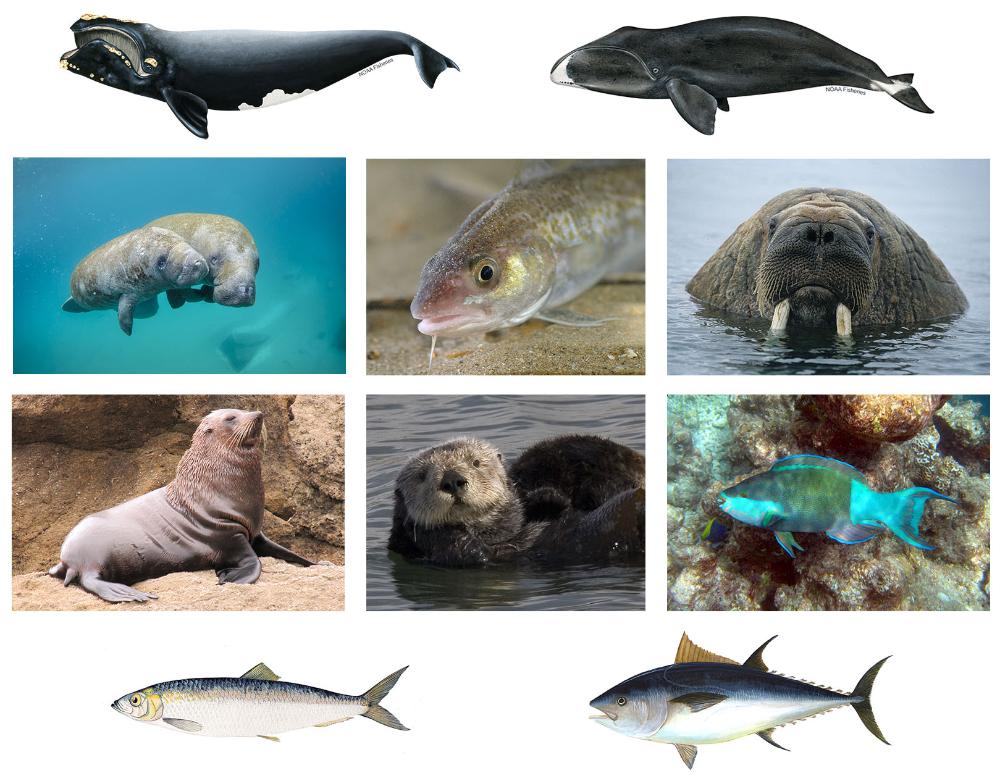4-Oceans
4-OCEANS

4-OCEANS aims to assess the importance of marine life for human societies during the last two millennia, up to the age of fishing under steam-power. We contend that the harvest of marine resources played a critical, but as yet underappreciated and poorly understood, role in global history. To bridge this gap in our understanding, the project includes an interdisciplinary team combining expertise in historical archaeology, marine environmental history, climate history, natural history, geography, historical ecology, ancient DNA, radiocarbon dating and zooarchaeology. We will examine when and where marine exploitation was of significance to human society; how selected major socio-economic, cultural, and environmental forces variously constrained and enabled marine exploitation; and identify the consequences of marine resource exploitation for societal development and the oceans. Through these objectives we will discover how marine resources as novel wealth altered societies throughout history. How might marine wealth have enabled some societies to escape food shortages? How did it trigger long-term socio-economic impacts and ecological consequences? How were marine resources valued, consumed, and energetically transformed?
Revealing this history will open a new window on human-nature dynamics of profound importance for understanding developmental trajectories of human societies. 4-OCEANS will transcend the binary distinctions of East and West, global-north and global-south, indigenous and colonial, resource exploitation and wildlife conservation, nature and culture. In so doing, 4-OCEANS will uncover and chart historical trajectories towards sustainable and unsustainable food security and resource extraction. Untangling human and natural drivers, we aim to explain how diverse historical trajectories created global networks, fuelling major centres with the products of distant ecosystems.
Before the industrial age, the four oceans exploited by humans were the Pacific, the Indian, the Arctic and the Atlantic, hence 4-OCEANS. It is also a project for the oceans. Our discoveries and outputs (including a World Atlas of Historical Marine Exploitation) aim to benefit every humanities- and science-based discipline touched by the sea. The project’s results will influence how academics, citizens and managers think about the consumption, value and future of marine life, about our shared ocean legacy and its sustainability.
The ambition of 4-OCEANS is global. To be achievable at this scale, the project will apply the methodology of selective systematic review and meta-analysis. It will gather, integrate, analyse, highlight and celebrate decades of high quality research by experts working with documentary, cartographic, iconographic, zooarchaeological and environmental evidence.
This meta-analyses will be given fine-grained historical resolution by cutting-edge primary research on 10 key (sometimes keystone) taxonomic groups that have been major targets of exploitation and/or are especially sensitive indicators of past human disturbance. Many of these taxa (e.g. right whales of the genus Eubalaena) will allow inter-ocean comparisons of animals having similar taxonomy and biology, maximizing the interpretive power of historical ecology data. Each taxon will have particular regional significance (e.g. fur seals in New Zealand; cod, and herring in the North Sea, bowhead whales and walruses in the Arctic, parrotfish in coral reef systems), and variable chronologies of exploitation. Collectively, however, they will provide an excellent understanding of global developments over the entire project chronology. Other marine resource exploitation will also be considered, not least the inshore harvesting of molluscs. Moreover, 4-OCEANS associated projects will spread the breadth of the research while also achieving their important independent aims and objectives.

The project is led by four principal investigators:
- James H. Barrett (NTNU: historical archaeology, historical ecology and zooarchaeology)
- Cristina Brito (NOVA University Lisbon: history of science and environmental humanities)
- Poul Holm (corresponding PI, Trinity College Dublin: marine environmental history and digital environmental humanities)
- Francis Ludlow (Trinity College Dublin: geography and climate history
The ancient DNA strand is led by Bastiaan Star (University of Oslo), and the radiocarbon dating by Bente Philippsen, director of the National Laboratory for Age Determination (NTNU).
The project cooperates closely with the University Museum of Bergen and a network of organisations internationally, including (among others) the Natural History Museum (London), the Smithsonian, the Nova Scotia Museum, Musée des Îles de la Madeleine and the Canadian Museums of History and Nature.
New webpage
Funding
4-OCEANS is a new European Research Council (ERC) Synergy Project. It is funded by the ERC under the European Union’s Horizon 2020 research and innovation programme (Grant agreement No. 951649).
Ancient DNA Team (University of Oslo)
Recent Developments
- 4-OCEANS welcomes our newest member, Dr. Tom Royle, who leads a zooarchaeological study of fishing in eastern North America
- 4-OCEANS welcomes our newest member, Dr. Erin Kunisch, who specializes in compound specific stable isotopes in marine ecosystems
- Postdoctoral researcher, Dr. Danielle L. Buss successfully received an early career researcher grant from the British Ecological Society for her project titled "Historic population structure and foraging ecology of fin whales in the North Atlantic during the industrial revolution". Danny will use historic samples from museum collections and archaeological sites to infer past population structure and foraging preferences of fin whales across the North Atlantic. Congrats, Danny!
